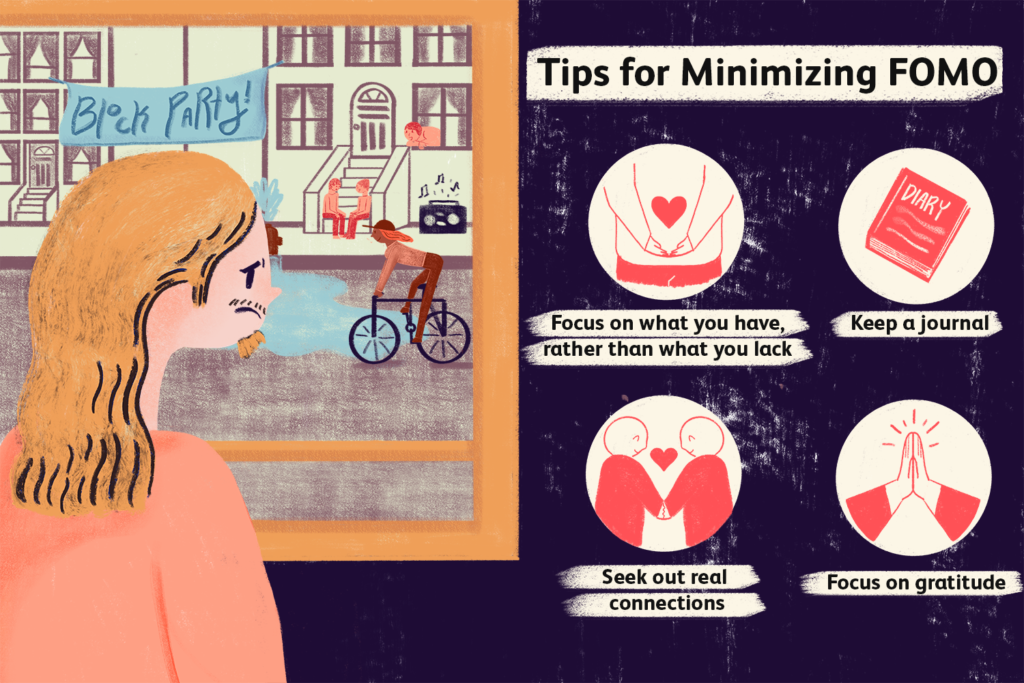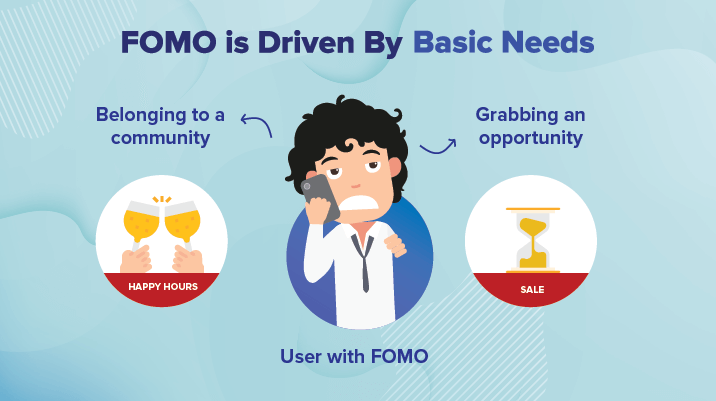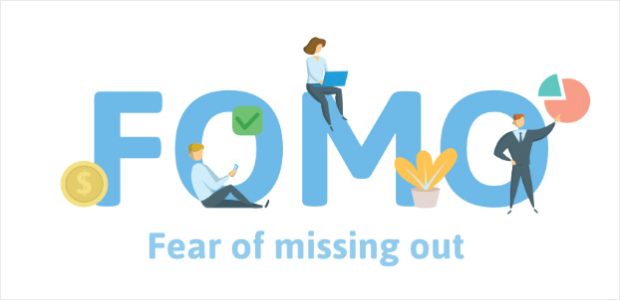WHAT IS FOMO?
- FOMO stands for Fear of Missing Out. It is a real phenomenon and one of the most extensive unfortunate consequences of social media. FOMO is a kind of anxiety or fear and a feeling or perception that happens when a person is scared of missing out on a good experience that someone else is having. It involves a profound sense of envy and harms self-esteem.
- It is becoming frequently common and can cause significant stress in your life. It makes you believe that others have more fun, live better lives, or experience better things than you are. It can hit anyone, but people of specific age groups are at higher risk. It is often worsened by social media sites like Instagram and Facebook. It always entails a sense of helplessness that you are blowing out on something great.

Investigation into FOMO
As more studies are conducted on FOMO, a more lucid picture of what it involves and its influences is becoming known. The picture is not pleasing, as there are many adverse effects of FOMO, and it is more prevalent than you might assume.
Social Media
Unsurprisingly, youngsters use social networking sites at a steep rate and may encounter FOMO as a result. Interestingly, however, FOMO acts as a tool that triggers higher social networking usage.
Girls feeling depression tend to use social networking sites at a greater rate while, for boys, anxiety triggers greater social media use. This shows that the enhanced use of social media can direct to higher stress rates caused by FOMO.
Researches have found that People of any age can experience FOMO. It is observed that the fear of missing out was connected to more significant smartphone usage and social media usage and linked to adverse mood swings.

Life Satisfaction Rating
Fear of missing out was correlated with a lower sense of having one’s needs met, and a softer feeling of life satisfaction in general.
It seems that FOMO is connected to both feeling a need to engage in social media and rising that engagement, which may contribute to a negative, self-perpetuating circle. Aside from prolonged feelings of sadness, fear of missing out can lead to greater involvement in unhealthy behaviors.
Dealing with FOMO
Luckily, steps can be practiced to check your FOMO if it is something you experience. Research confirms that FOMO can stem from unhappiness and dissatisfaction with life and that these feelings can thrust us into more significant social media usage, which in turn can make us feel more inferior about ourselves and our lives. Understanding where the problem lies, however, can be a significant first step in overcoming it. The following self-help methods have been listed below:

Shift Your Focus
Rather than concentrating on what you lack, try embracing what you have. We may be bombarded with fancy images of things we do not have on social media, but it can be done. Add more real people to your feed; unfollow people who brag too much or not support you.
Improve your feed to show you less of what triggers your FOMO and more of what makes you feel good and happy about yourself
Try to Keep a Journal
Keeping a journal can help you substitute your focus from public approval to personal appreciation of the things that make your life happy. This shift can sometimes help you to get out of the cycle of social media and FOMO. It is common to post on social media to keep a record of the fun things you do. But simultaneously, you may find yourself seeing a little too much about whether people are approving your activities online. In such a case, you may want to take some of your photos and memories offline and keep a personal journal of your best memories on paper.
Connect Yourself with more Genuine People
You may find yourself seeking a more significant connection when you feel depressed or anxious, which is healthy. Feelings of loneliness or exclusion are actually our brain’s way of telling us that we want to seek more incredible connections with others and increase our sense of belonging. Rather than connecting more with people on social media, try to meet up with someone in person.
Making plans with a good friend, creating a group outing, or doing anything social that gets you out with friends can be a nice change of pace, and it can help you to shake that feeling that you are missing out. It puts you in the center of the action.

Be Grateful
Engaging in gratitude-enhancing activities like merely telling others what you acknowledge about them can lift your spirits as well as those around you. This is partly because it is more challenging to feel as if you lack the things you need in life when you are centered on the abundance you already have. It also holds true because making others feel good makes us feel good. You will begin to think that you have what you need in life, and so do other people. This can be wonderful for your mental and emotional health.
Conclusion
Although FOMO strongly corresponds with social media usage, it is essential to remember that it is a genuine and familiar feeling among people of all ages. Everyone feels a certain level of FOMO at different times in their lives. If you think you are suffering from feelings of missing out, reach out to a friend, or spend some time reflecting on the things you are grateful for in your life. Activities like these can help us put things in perspective as we gather a greater sense of belonging and release the anxiety of “missing out” on anything.




















